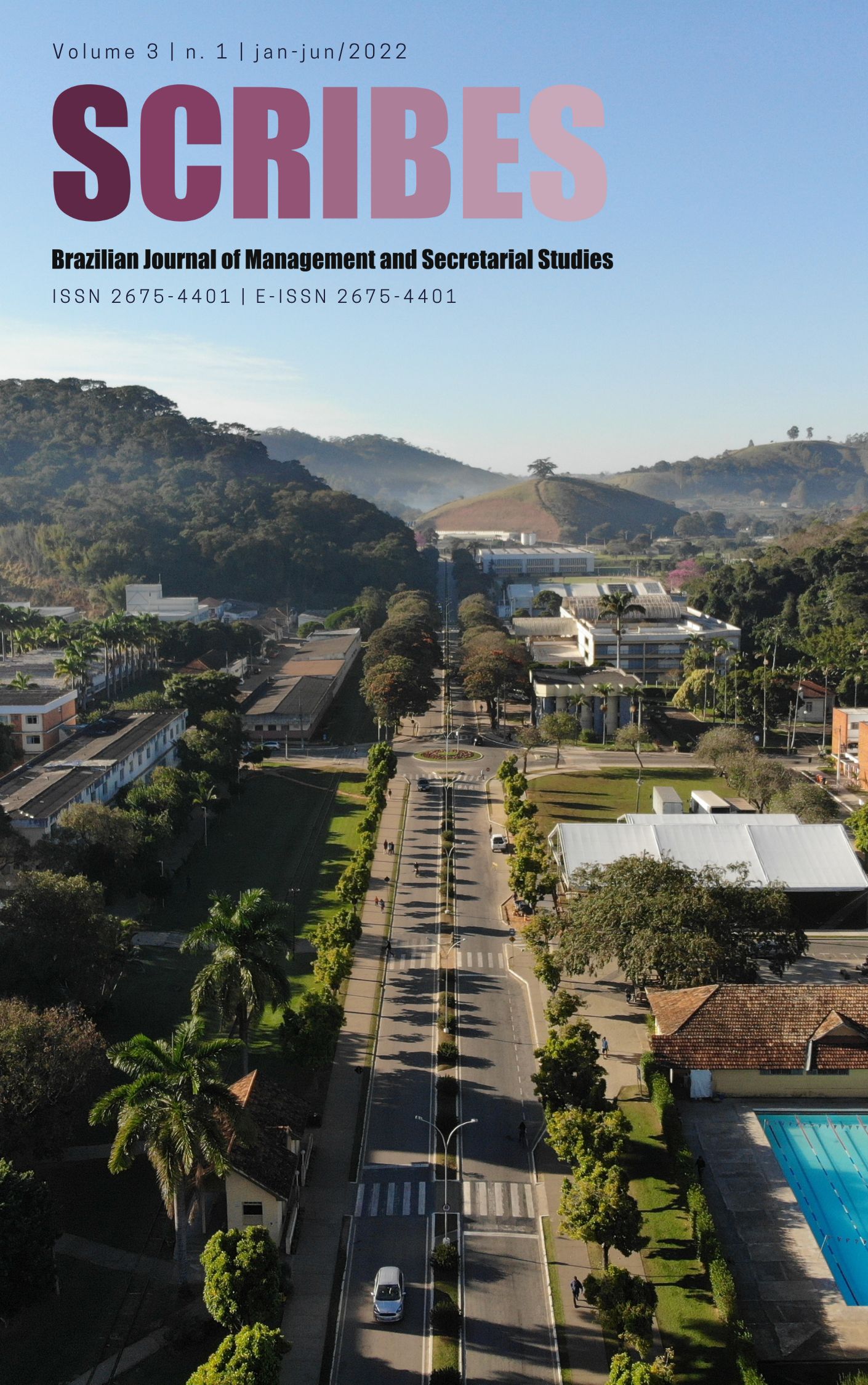Analysis of the perception of teachers of the Executive Secretariat area on moral harassment in the workplace
DOI:
https://doi.org/10.33228/scribes.2022.v1.13593Abstract
This study aimed to present how the Executive Secretariat course professors perceive moral harassment in their work environment. Therefore, we sought to define the practices that are configured as moral harassment and where they can arise. The research sought to answer the following question: How do the professors of the Executive Secretariat course perceive mobbing in the work environment? The theoretical framework dealt with conceptualizing moral harassment, showing its consequences and impact on worker productivity and health; still, conceptualize the descending and ascending vertical and horizontal moral harassment. The methodology consisted of exploratory field research, applied to teachers from two educational institutions, one of public higher education and the other of public technical education in the state of Roraima. The sample consisted of 70% of the professors of the Executive Secretariat course of the higher education institution and 25% of the professors of the technical education institution. All respondents are trained in Executive Secretariat. Among the main results, it is highlighted that about 60% of the professors claim to have suffered bullying from co-workers of the same hierarchical level; and regarding their attitude towards moral harassment, 80% of respondents advise victims to report the case to the competent authorities.
Downloads
Downloads
Published
How to Cite
Issue
Section
License
Published authors agree on the following items:
a. Authors keep copyright ownership whilst ceding to SCRIBES the right to a first publication. The material is also simultaneously licensed under the Creative Commons Attribution-NonCommercial 3.0 Unported Licence, which allows its publication with mutual recognition of authorship and initial publication through SCRIBES.
b. Authors are authorised to engage in third-party contracts independently, as long as they are pursuing a non-exclusive publication of the article originally published in this journal, such as having it appended to an institutional repository or included in a book as a chapter. Authorship and original publication by SCRIBES must still be acknowledged.
c. Authors have permission to and are encouraged to publish their research online, such as in institutional repositories or in their own personal web pages. They are allowed to do that before or after the editorial process, once it inspires any opportunistic alterations to be considered during the aforementioned process, and increase the content’s impact and value as a quotable work (read more on The Effect of Free Access).




